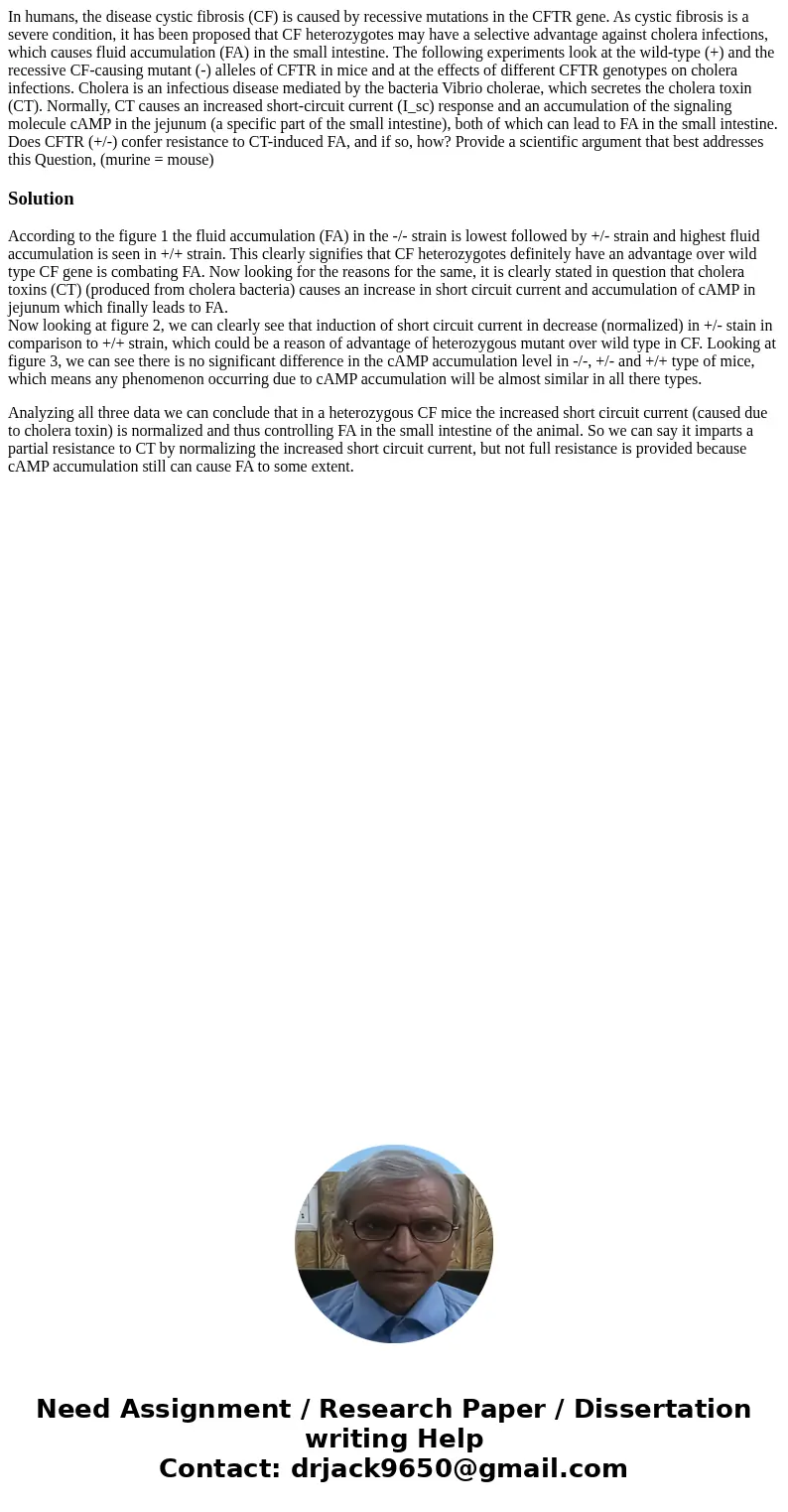In humans the disease cystic fibrosis CF is caused by recess
Solution
According to the figure 1 the fluid accumulation (FA) in the -/- strain is lowest followed by +/- strain and highest fluid accumulation is seen in +/+ strain. This clearly signifies that CF heterozygotes definitely have an advantage over wild type CF gene is combating FA. Now looking for the reasons for the same, it is clearly stated in question that cholera toxins (CT) (produced from cholera bacteria) causes an increase in short circuit current and accumulation of cAMP in jejunum which finally leads to FA.
Now looking at figure 2, we can clearly see that induction of short circuit current in decrease (normalized) in +/- stain in comparison to +/+ strain, which could be a reason of advantage of heterozygous mutant over wild type in CF. Looking at figure 3, we can see there is no significant difference in the cAMP accumulation level in -/-, +/- and +/+ type of mice, which means any phenomenon occurring due to cAMP accumulation will be almost similar in all there types.
Analyzing all three data we can conclude that in a heterozygous CF mice the increased short circuit current (caused due to cholera toxin) is normalized and thus controlling FA in the small intestine of the animal. So we can say it imparts a partial resistance to CT by normalizing the increased short circuit current, but not full resistance is provided because cAMP accumulation still can cause FA to some extent.

 Homework Sourse
Homework Sourse